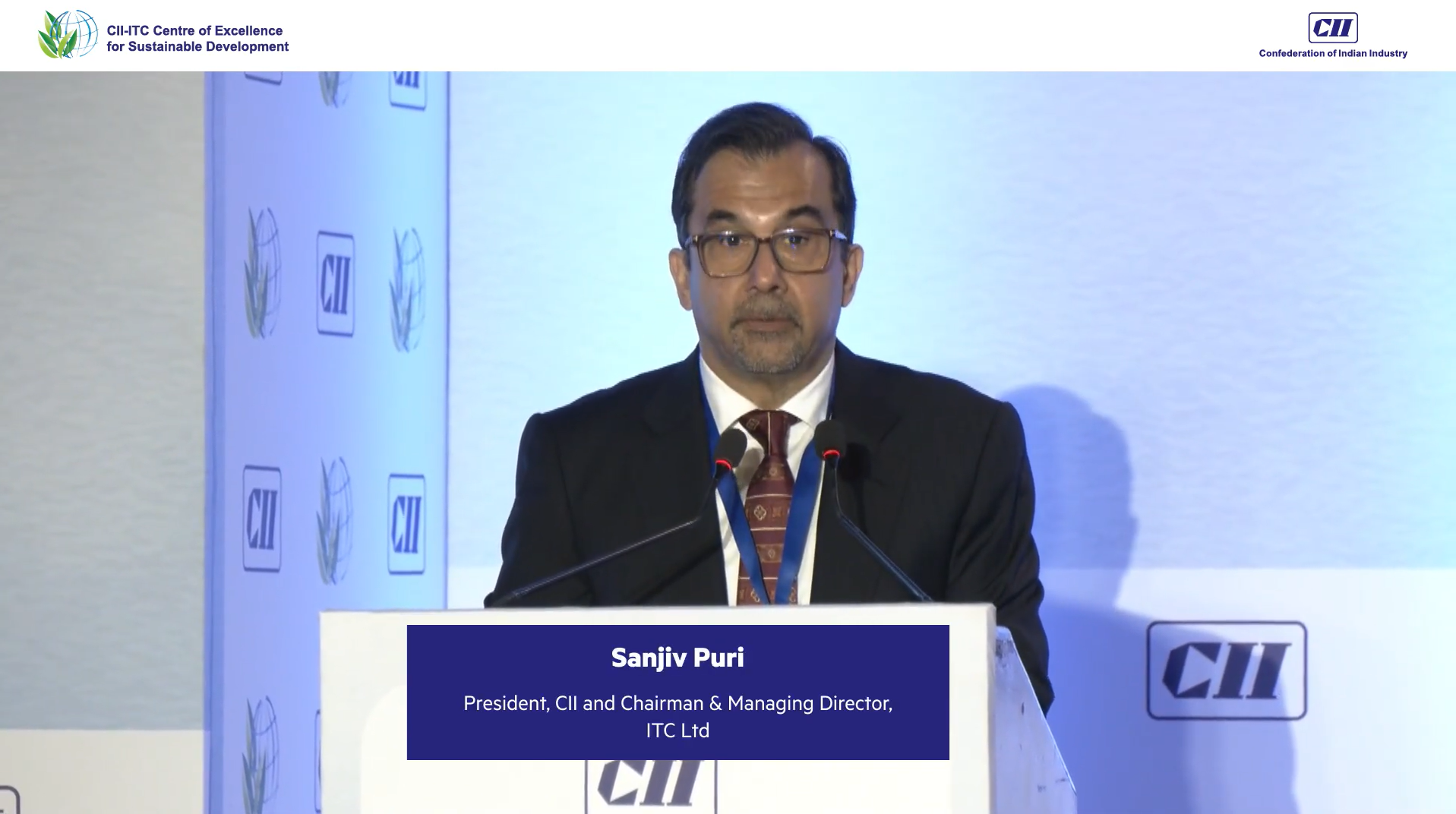Message in the CII Study on Building Climate Resilience for Indian Industry

Mr Sanjiv Puri
President, Confederation of Indian Industry and Chairman, Advisory Council, CII-ITC Centre of Excellence for Sustainable Development and Chairman & Managing Director, ITC Ltd
Around the world, "including in India", an increased occurrence of extreme climate events has been noted over the years, resulting in significant human and economic losses. In India, while the central and state governments are taking action and allocating more resources to disaster recovery efforts, the private sector urgently needs to assess and effectively tackle the severe impacts of extreme climate events.
From an adaptation and resilience perspective, businesses are increasingly realising that they face significant challenges ranging from capital damages due to physical risks such as floods and cyclones, impact on social aspects including decline in productivity from extreme heat or heavy rainfall, and supply chain disruptions affecting transportation of raw materials and finished products.
Building adaptive capacity has its own share of challenges, including the absence of a unified framework for assessing climate risks across sectors, limited access to reliable climate data, inadequate use of technology in resilience strategies, lack of established funding sources and the complexity associated with modelling and forecasting extreme weather events.
Addressing these challenges demands coordinated efforts between industry, different tiers of government, urban planners, municipalities, and experts in the field, along with industry actors playing a key role in sharing best practices, offering technological solutions, and leading resilient infrastructure development. Driven by these requirements and to actively engage with its members to enhance climate resilience, the Confederation of Indian Industry (CII) is working to stimulate collective action to address climate change risks faced by the Indian industry.
The study on “Building Climate Resilience for Indian Industry” has developed a framework to assess and quantify climate risks for Indian businesses and their value chains. The framework is designed to help enterprises identify risks from floods, droughts, heatwaves, cyclones, and other phenomena caused by climate change and guide them in prioritizing appropriate adaptation actions across sectors and in different regions. Although primarily focused on industry, the framework can also form the foundation for a national strategy to assess and manage climate risks.
As outlined in the report, under the ongoing development of India's National Adaptation Plan (NAP), the relevant state departments could work with stakeholders towards the creation of a climate change adaptation taxonomy. This taxonomy could establish clear definitions on building adaptive capacity and climate resilience in the Indian context, along with setting specific project guidelines. It would facilitate private sector adoption of adaptation practices, prioritize investments for building resilience and allow for greater public-private participation, eventually leading to building resilience at scale.
The study highlights the role of industry in bringing in private capital, conducting in-depth site-specific studies that allow for clarity in investments, and building resilient infrastructure. Initiatives such as the climate risk assessment framework provide the necessary tools for Indian industry to play its part and should be further encouraged for uptake through appropriate incentives.
In the coming years, addressing existing data gaps by investing in required satellite technology, weather monitoring stations, and developing advanced predictive models complemented by evidence-based policy research will be crucial. Addressing the impact of climate change is a very complex endeavour and calls for intensive collaboration among policymakers, businesses, and civil society. As we chart this course, CII remains committed to leading from the front, driving innovation, advocating for conducive policies, and facilitating the sharing of best practices.
Through concerted efforts, knowledge sharing and united and collaborative actions, businesses can play an indispensable role in driving transformative change towards a future with sustainable action that enhances social and economic well-being of individuals and communities. The present study is a step in this direction, and I am confident that it will set a benchmark for future industry action in this critical area.
This article written by Mr Sanjiv Puri was first published in the Summary Report of the CII Study - “Building Climate Resilience for Indian Industry”. The report was released in September 2024 during the 19th Sustainability Summit. The summary report can be read here
Published on 15 October 2024
